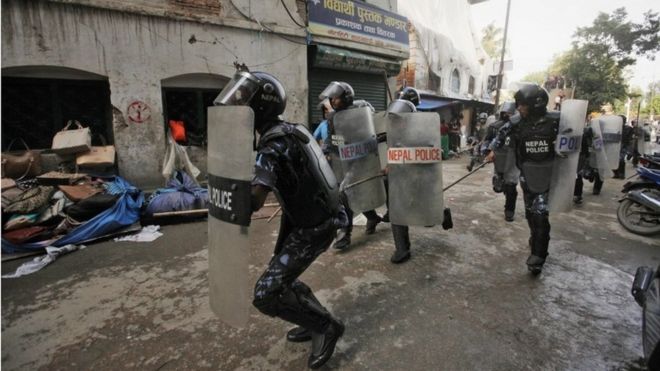
India's reaction to Nepal's new constitution and the violence preceding and following it, has been criticised by Nepal's media and Twitter users.
The Indian government expressed "concern" over the constitution and on Monday recalled its ambassador to Nepal for urgent consultations.
Since then, leading Nepalese newspapers have been criticising what they see as interference.
More than 40 people have been killed in protests in areas adjoining India.
'Crossing the red line'
"Certainly, while drafting the constitution serious problems have erupted in our country," says the prominent Nepali paper Kantipur, but goes on to add that "it is for us to solve these problems".
"A neighbouring country's coming into the picture, or its being invited to solve our internal problems and challenges, is not acceptable at all," the paper says.
The English-language Kathmandu Post says in an editorial that "Delhi would do well not to be seen as crossing the red line to meet its objective. It could box itself in a difficult position and see it lose its diplomatic leverage against certain parties and sections of the polarised society".
My Republica, another English daily, carries a prominent story on how former Nepalese diplomats find Delhi's response "inappropriate".
"If India involves itself in the micromanagement of its neighbouring countries, such a move may give a wrong message to the international community," the paper quotes Shankar Sharma, Nepal's former envoy to the US, as saying.
Another paper, The Rising Nepal, adds: "In all, India has not yet supported the new constitution, which many fear would invite trouble in the shape of rousing disturbances in the Terai region which borders India."
Fuel worries
Meanwhile, the response from Nepalese Twitter users has been even stronger, with the hashtag #backoffIndia trending worldwide till late on Tuesday, with more than 180,000 tweets posted on the day.
The violence in Nepal is also said to be affecting the supply of fuel in the capital, Kathmandu, and other major towns. Nepal relies on India for fuel but reports say many truckers are wary of entering Nepal because they fear violence from clashes between protesters and police.
Twitter users in Nepal are concerned about this, with some accusing India of deliberately stopping the fuel supply.
deliberately stopping the fuel supply.
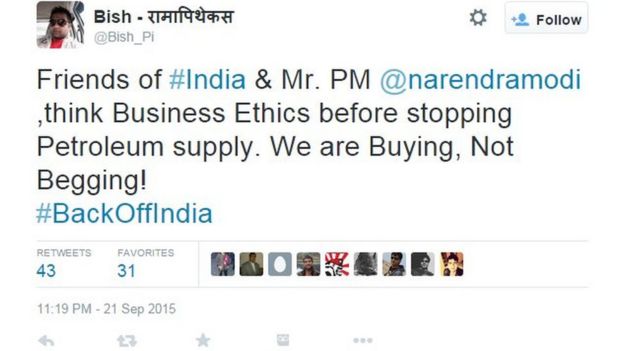 Twitter
Twitter
More than 10,000 tweets on Tuesday addressed Mr Modi's Twitter account and that of the Indian prime minister's office, many telling him in no uncertain terms to stop interfering in Nepal's sovereign issues. And #growupmodi was among the more polite examples of tags making the rounds.
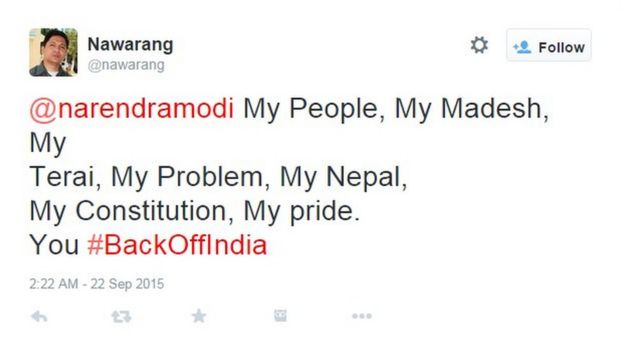 Twitter
Twitter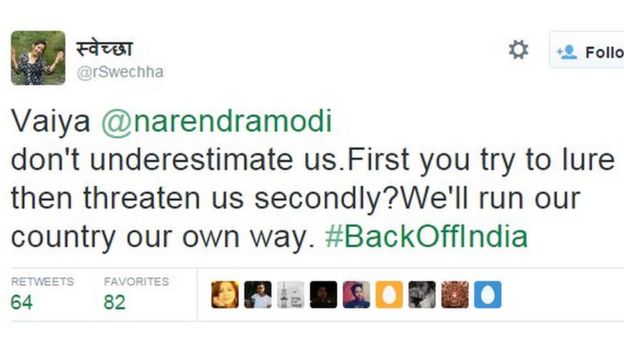 Twitter
TwitterTargeting Indian government, not people
Some Nepalese Twitter users, however, sought to clarify that their anger was not directed at the Indian people but the government.
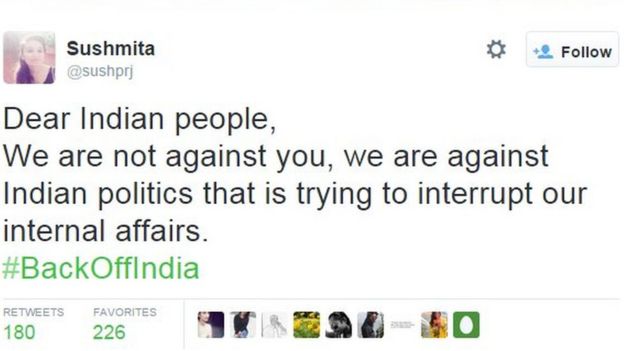 Twitter
Twitter
Sushmita, using the handle "@sushprj", tweeted: "Dear Indian people, We are not against you, we are against Indian politics that is trying to interrupt our internal affairs. #BackOffIndia"
No comments:
Post a Comment